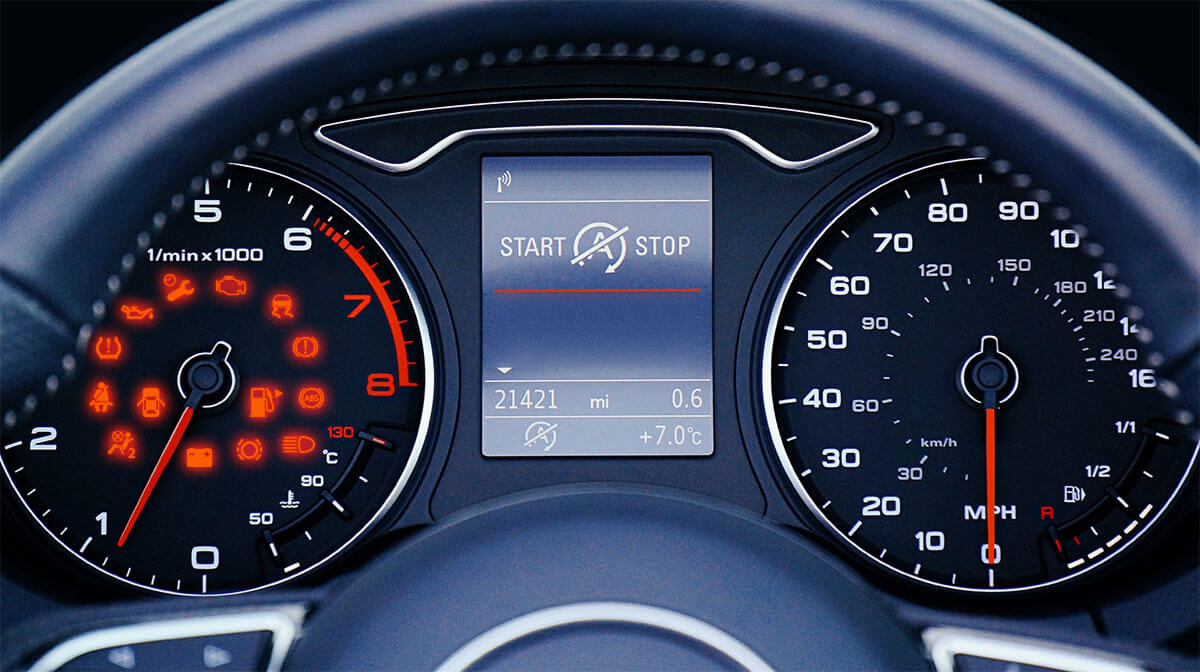
You know the story. A couple of car warning lights appear on the dashboard. Your vehicle runs OK though and you don’t think much of it, and so you ignore them. Big mistake!
Just don’t do it. It’s bad enough for an average motorist to do this with a passenger vehicle, but when fleet drivers or fleet managers go down this route, you know it is only going to end in tears, and probably a bigger bill at the auto repair shop.
The reason you have any kind of alert or notification is to give you a heads up that you need to check something. In an age where hardly anybody ignores a notification on their mobile phone, why do it with your fleet vehicles?
There are many kinds of car warning lights on cars, trucks, vans and other vehicles. Some are obviously less significant than others, but if you get in the habit of ignoring them, then that’s a big mistake, and is asking for trouble.
Car warning lights: sorting the important from the insignificant
In an age where practically all vehicles now are loaded with software and diagnostic computers to give you notifications and alerts on almost anything that may be wrong or faulty, it can be hard to know which ones to be most wary of. As long your dashboard is not lighting up like a Christmas tree, you may think that your vehicle is OK. But no. All car warning lights are important in some way, mainly for safety reasons, such as a notification that a brake light bulb is not working.
At the end of the day, this is about more than showing your vehicle some love. Here are the most important car warning lights that we feel simply should not be ignored. Ever.
Engine warning light
It goes without saying that this one is your North Star in terms of importance. While the issue could sometimes be minor, such as a faulty plug somewhere, you can just never know until a mechanic plugs in his computer and runs the diagnostic check. If you ignore it, since the vehicle is running normally, then you may end up with an additional cost. That in case this issue triggers a problem elsewhere in the engine system.
Airbag warning light
As always, you need to think about safety first. Safety comes above everything else. As a driver you may be confident that you won’t ever have an accident. But what if the faulty airbag decides to explode as you’re driving along? It’s simply not worth taking the risk.
Brake warning light
Remember the old nightmare you have when you push the brake pedal and nothing happens? Well, the risk may not be as dramatic as that when your brake light notification comes on, but still, that’s where things could go if it is ignored. Much like airbags, this is a safety first measure. Anything related to brakes needs to be checked. Right away.
Temperature warning light
This one is another essential one to get checked out asap. Whatever the reason may be (and it’s not a great idea just to guesstimate), if the temperature of the engine is nothing but normal then it’s advisable to get it checked straight away. The alternative? It could literally blow up. And that’s something you don’t want.
Battery warning light
We all wish that batteries would last forever. Unfortunately they don’t. This one is not such a “stop the vehicle immediately and call for a pick-up”, but still, a car battery light means that you’re losing power, and/or that the battery is going to die soon (if it hasn’t already at that point).
Get notifications on your fleet vehicles on the go
In the past, a fleet owner would not be able to see or be aware of all the car warning lights which have turned on in any of his/her fleet of vehicles. All that has changed with the widespread adoption of vehicle management solutions such as our very own Veturilo.
Fleet owners and fleet managers are now able to inspect all of their vehicle warning lights remotely. What’s the benefit of that then? Well apart from speed and efficiency, it also helps you make potential cost-savings, and generally operate at top safety levels.
But you may ask, what can you actually prevent from happening by being being aware of car warning lights? Try these for size:
- Engine — avoiding bigger faults and failures that lead to breakdowns
- Fuel — making savings on fuel efficiency
- Battery — ensuring that your vehicles batteries do not die on the job
- Ignition on/off — you can know when and where these events happened and if they were scheduled in order to evaluate fuel efficiency and safety
- RPM (revolutions per minute) — to measure driver behaviors which may effect the performance of the vehicles and cause extra maintenance costs
Only benefits…
Besides the above, you’ll also be able to receive specific diagnostic trouble codes and get valuable information on what’s happening with all of your vehicles. At any time and from anywhere. The benefits are plain to see. By monitoring all of your vehicles, and checking up on car warning lights in real time via a vehicle management solution, you will undoubtedly prevent and resolve many of those unwanted situations and events that set your business back.